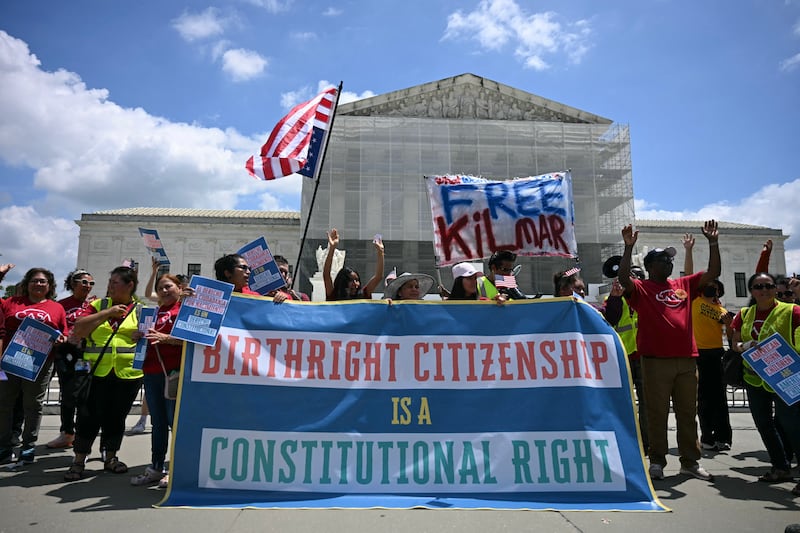A federal appeals court has dealt a blow to President Donald Trump’s effort to end birthright citizenship, ruling that his executive order was unconstitutional.
“The district court correctly concluded that the Executive Order’s proposed interpretation, denying citizenship to many persons born in the United States, is unconstitutional. We fully agree,” Judge Ronald Gould, a Bill Clinton appointee, wrote for the 2-1 majority on the 9th U.S. Circuit of Appeals.
The majority concluded in Wednesday’s ruling that the executive order was “invalid because it contradicts the plain language of the Fourteenth Amendment’s grant of citizenship to ‘all persons born in the United States.’”
Gould was joined on the majority by Judge Michael Hawkins, who was also appointed by Clinton. Judge Patrick Bumatay, a Trump appointee, partially dissented, arguing the states did not have the right to bring the case.

The decision prevents the government from nationwide enforcement of Trump’s order, which aimed to deny citizenship to children born in the U.S. to undocumented parents.
Trump signed an executive order on the first day of his presidency titled, “Protecting The Meaning And Value Of American Citizenship.” It attempted to limit birthright citizenship even though it is enshrined by the 14th Amendment.
The order was swiftly challenged in the courts, and was blocked within a month by three federal district judges who issued nationwide injunctions.
The Trump administration sought relief from the Supreme Court, which did not rule on the constitutionality of the order, but instead argued in June that lower courts do not have the authority to block the policies nationwide.
The 9th Circuit case was filed by Democratic attorneys general in four states: Washington, Arizona, Illinois, and Oregon. They argued that it would be problematic for the order not to apply nationwide.

It marks the second time a court has ruled against Trump’s order since the Supreme Court’s decision to restrict injunctions. Earlier this month, a federal judge in New Hampshire also blocked Trump’s order nationwide by certifying a class-action lawsuit.
Trump’s order was first blocked in February by U.S. District Judge John Coughenour, a Ronald Reagan appointee based in Seattle. Wednesday’s decision keeps that decision in place.
Each court to rule so far on the legality of Trump’s order has found it to be unconstitutional.






